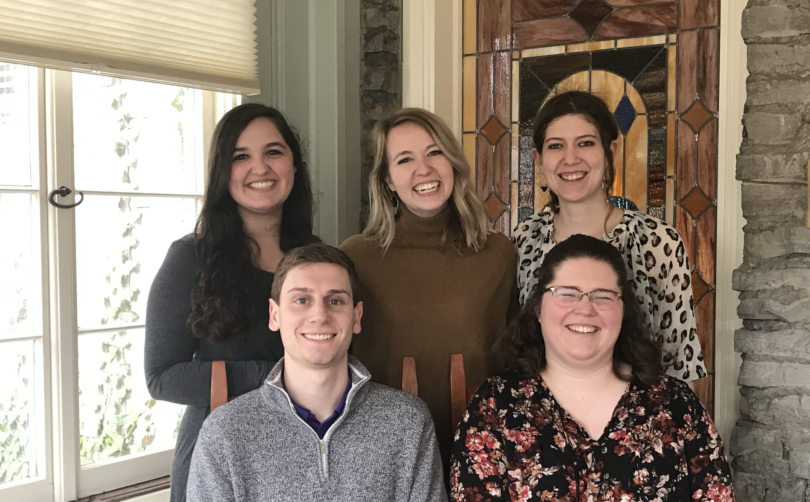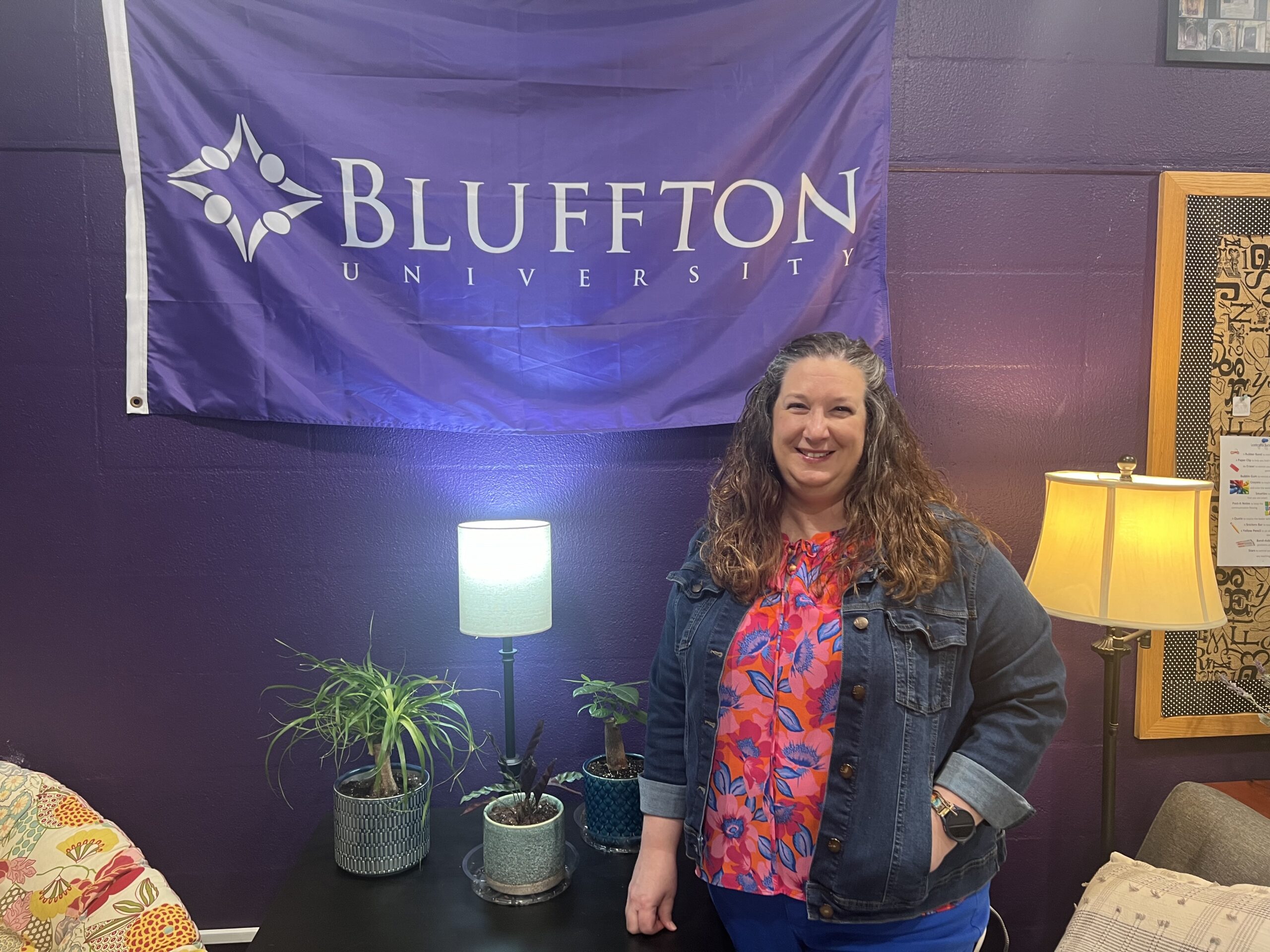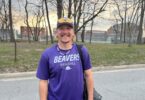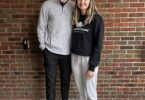At Bluffton, it’s all about relationships. This emphasis on relationships and community on campus is what first brings students to campus. It’s also what eventually draws alumni back to work as employees.
Samantha Shrider ’12, Kevin Christie ’18, Meg Short ’16, Alyssa Eby ’18, Holly Metzger ’05, and Leah Schroeder ’13, each made the decision to return to work at Bluffton, marking one of the very first admissions teams at Bluffton University to be made up of nearly all Bluffton alumni.
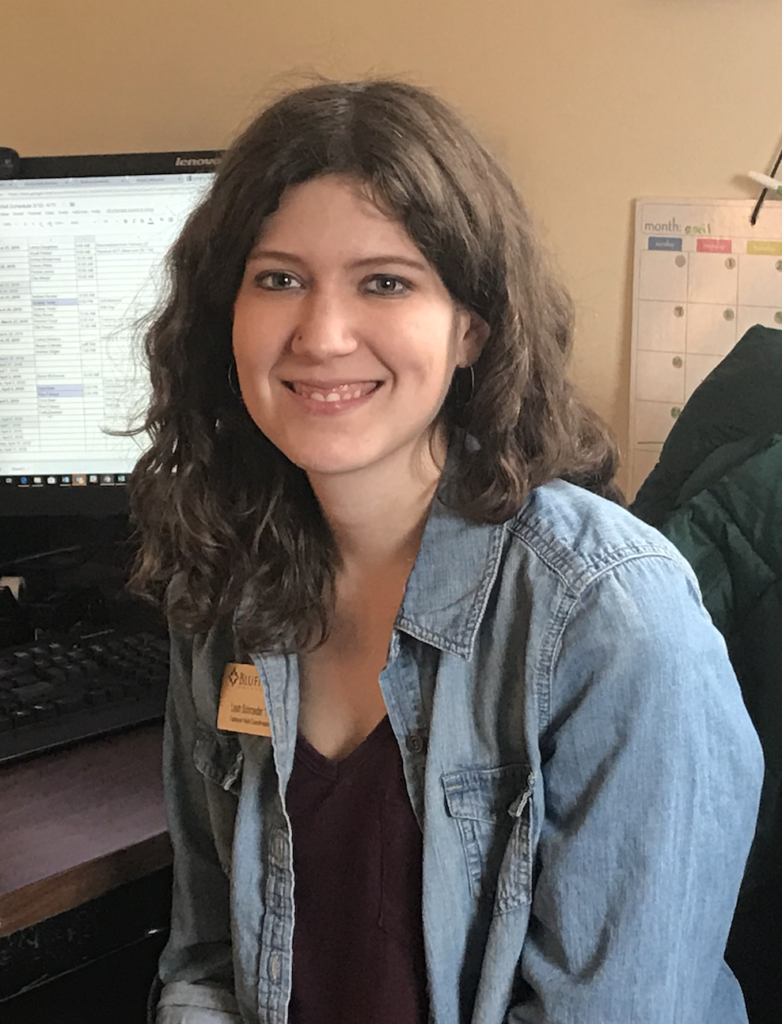
“I’ve been working in this position for almost three years,” said Schroeder, who serves as the campus visit coordinator. “So I’ve seen different people in different roles and this is the first time everyone has been alumni. It’s just kind of fun because we have different experiences and different memories of Bluffton.”
While each counselor has similar memories from Bluffton as a student, Short explained how the individual experience of each counselor has became a helpful tool within their team.
“I think even though we are a small campus, we all had some different experiences on campus, so we can kind of pull from those when talking to prospective students,” said Short.
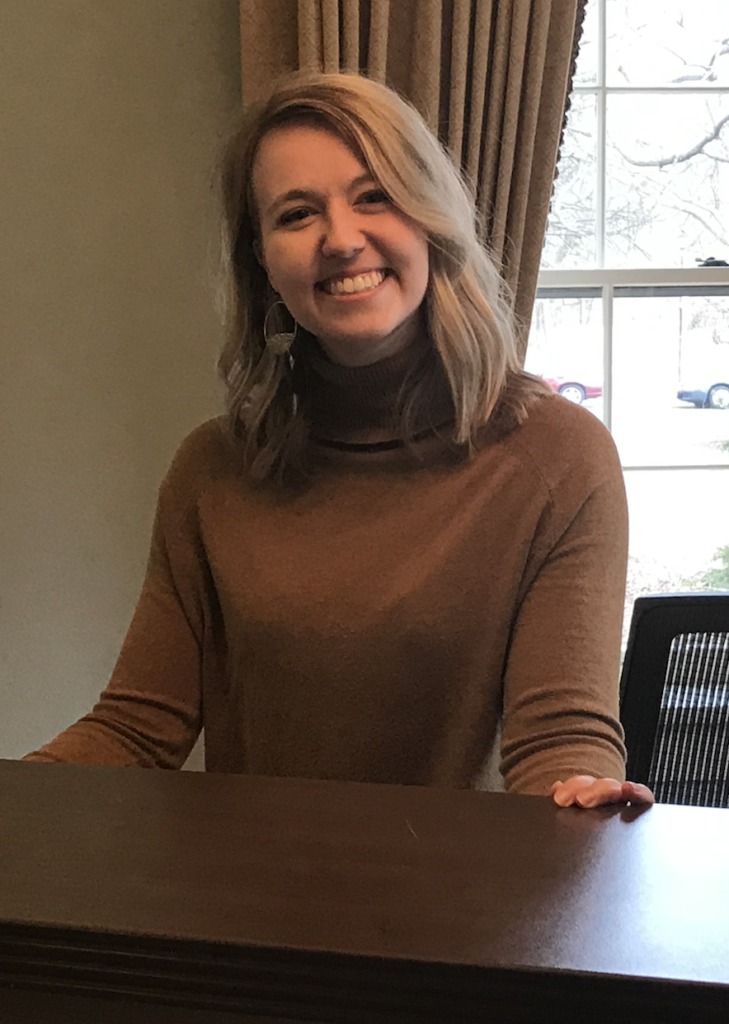
“I like it because I can say some sort of random Bluffton thing and then everybody immediately nods and knows what I’m talking about,” said Shrider. “I’ll never have to explain myself, which is nice.”
This feeling of camaraderie wasn’t always present amongst the counselors. Shrider cited an example of how a former counselor for the university once said she didn’t know what a Bluffton student looked like.
Short said there was a specific perception of the university’s admissions counselors during her time as a Bluffton student.
“None of them were alumni other than Erin [Burkholder]. They weren’t involved in the life of community at all,” said Short. “No one knew who they were other than the students they had recruited, and they were just really distant from campus.”
Collectively, the admissions counselors shared they agreed on a desire to change this perception surrounding the admissions team on campus.
“We want to be involved in the current students’ lives and not just the prospective student’s lives,” said Short. “We want to show them that we really care, because we do care. We were just in their shoes a couple years ago, and we know exactly what they’re going through.”
The relationships created by admissions counselors during their time at Bluffton have also helped in their recruitment of incoming students. Eby said her pre-existing relationships and connections with the faculty was very beneficial.
“Marathana [Prothro] and I work a lot together trying to recruit communication students by figuring out how can we team up to get this person to come to Bluffton. Or working with this faculty member we already had a connection with that way, we can build off those relationships we built as students instead of having to start from scratch,” said Eby.
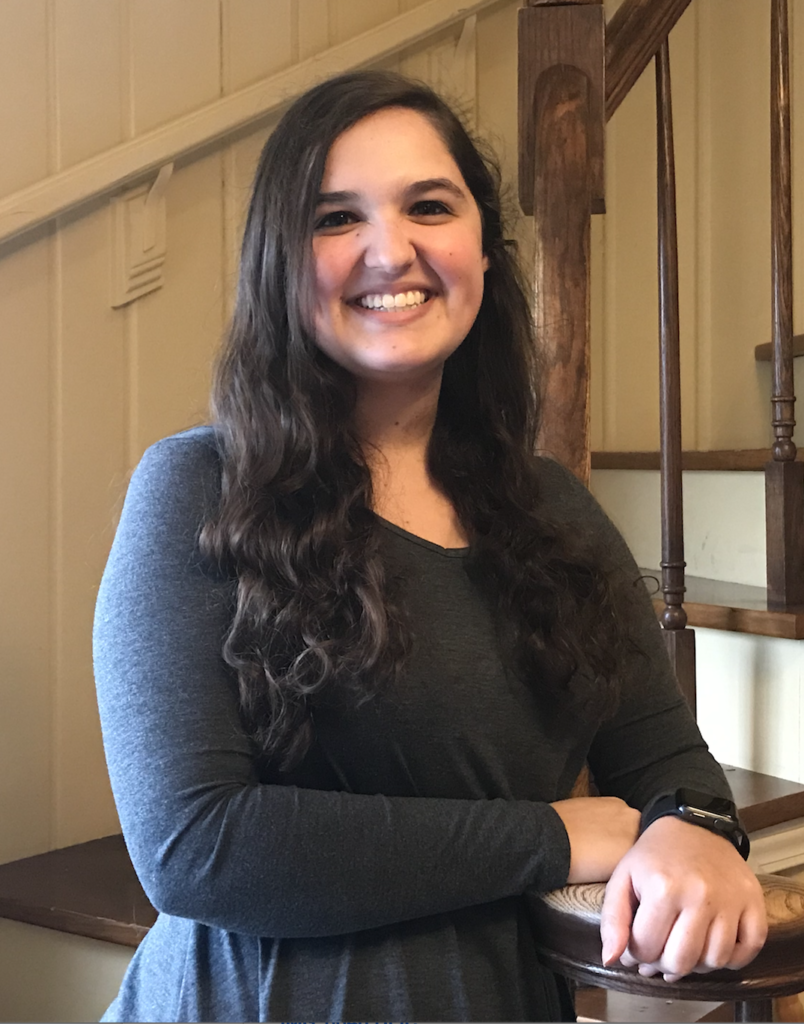
With their familiarity and connection to the university’s mission, the admissions counselors are able to communicate more effectively with prospective students and each other.
“I think it makes for a really great work environment, because we all have that personal investment and we all want to see Bluffton thrive,” said Schroeder. “We want to see students do well here, so we just all get really passionate about things.”
Eby echoed this thought as she said she feels supported both emotionally and professionally at Bluffton. Not only did Eby say she loved her co-workers, she said she could use this passion she has for Bluffton to help other students have their own positive experience.
“I know what a special place Bluffton was to me when I was here, and now I have the opportunity to help students find that for themselves,” said Eby.
When it comes to doing admissions work, the counselors agreed being an alumni has helped them transition into these new roles and authentically tell the story of Bluffton.
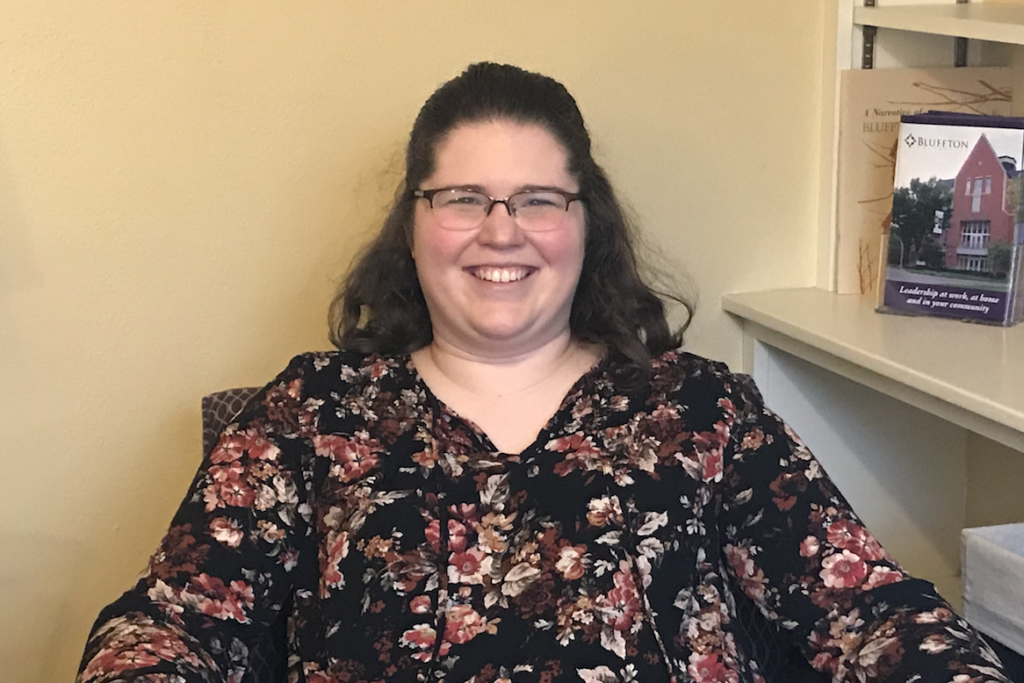
“This job comes with its own set of difficulties and I can only imagine that it’s that much more difficult learning about a college you didn’t go,” said Shrider. “There’s all these inquiries that students will ask you that you inherently don’t have if you’ve never been apart of that community.”

